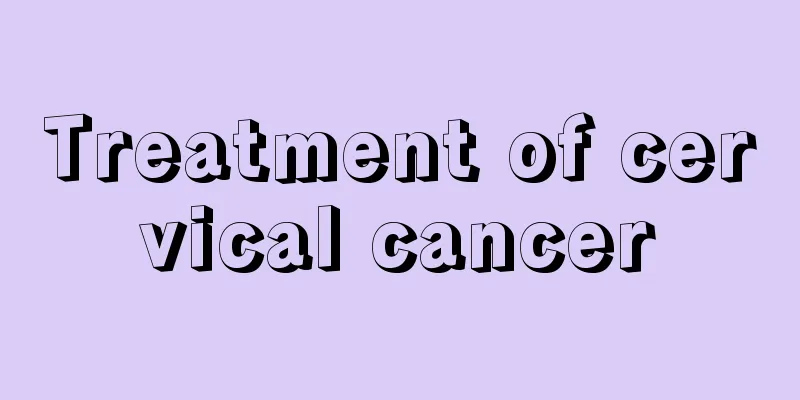Diet care for patients with nasopharyngeal carcinoma

|
There are many side effects for nasopharyngeal carcinoma patients after radiotherapy, such as mucosal damage, bone marrow suppression, leukopenia, etc. Side effects related to malnutrition include: head and neck radiotherapy damages taste cells, causing taste reduction or disappearance, and loss of appetite; it is very important to do a good job of postoperative dietary care. The following is a discussion of dietary care for nasopharyngeal carcinoma patients , hoping to help everyone. Diet care for patients during and after radiotherapy is very important. Generally, patients should be given liquid or semi-liquid food, and the amount and frequency should be adjusted according to the patient's condition. Do not force them. For patients with poor diet, intravenous high nutrition can be given to supplement the severe consumption in the body. What foods should I eat during radiotherapy? After receiving radiotherapy, patients often experience dry lips, red tongue with less coating, reduced sense of smell, poor appetite and other symptoms of body fluid depletion. At this time, the patient's diet should be highly nutritious, easy to digest and balanced, eat more vegetables and fruits, eat less or no salted fish, pickles, bacon, cured meat and other foods containing nitrosamines, avoid spicy and irritating foods, and avoid excessive drinking. Especially during the radiotherapy and chemotherapy of nasopharyngeal carcinoma, patients often experience dry mouth and throat, loss of appetite, nausea and vomiting. Traditional Chinese medicine believes that this is due to deficiency of qi and yin, and intense heat and toxicity. Spicy and irritating products should be avoided. The diet should be light, and foods that are easy to digest, nutritious and delicious should be selected. These are all things that patients with nasopharyngeal carcinoma should pay attention to in their dietary care. The medicines and foods that can be used for diet therapy include: monk fruit, lily, loquat, American ginseng, yam, lotus seeds, lotus leaves, water chestnut leaves, pear juice, radish juice, mung bean soup, winter melon soup, reed root soup, watermelon, pumpkin, loofah, jellyfish, loquat, kelp, water chestnut, etc. Eat more fish, meat, milk, honey, fresh vegetables, fruits, etc. The above is an introduction to the dietary care for nasopharyngeal carcinoma patients. Good daily care is of great help to the recovery of the disease. If you want to know more about nasopharyngeal carcinoma, please consult online experts. For more information, please visit the nasopharyngeal carcinoma disease topic at http://www..com.cn/zhongliu/bya/ or consult an expert for free. The expert will then give a detailed answer based on the patient's specific situation. |
<<: What are the early clinical manifestations of nasopharyngeal carcinoma?
>>: Four early manifestations of skin cancer
Recommend
What is ovarian cancer and how to treat it
Now everyone knows that ovarian cancer is a tumor...
Traditional Chinese medicine treatment for pulpitis
If you suffer from pulpitis, of course you must p...
Physical therapy for chest tightness and shortness of breath
Some people may suddenly feel their chest is very...
How to remove scars on feet
In our daily lives, we are bound to encounter man...
Examination for early diagnosis of kidney cancer
Kidney cancer is a common disease in life, but it...
A brief analysis of the diagnosis and examination of breast cancer in the elderly
As one of the common high-risk groups for breast ...
Focus on three parts of your body when "covering" in early spring
Although it is spring now, the temperature change...
What are the symptoms of burn wound infection?
Burns are actually very common in life, but many ...
Where is the triceps
The triceps is actually located in the upper arm....
Several aspects that need attention in preventing kidney cancer
The occurrence of kidney cancer is closely relate...
How is anal fistula formed
Speaking of anal fistula, it is a very common ano...
Pathological difference between gastric ulcer and gastric cancer
Facts have proved that there is a difference betw...
How to correct cervical scoliosis?
Scoliosis of the spine is actually quite common, ...
Can washing your face with vinegar remove freckles?
How can a beautiful face tolerate the appearance ...
Tips to make your hair darker
A head of thick black hair is what everyone wants...









